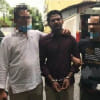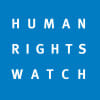HRW concerned over arrests for social media posts in Bangladesh
Human Rights Watch (HRW) has expressed concern over the recent arrests made by Bangladesh authorities over social media posts.
“Bangladesh authorities made a series of new arrests in their crackdown on the right to free speech. The arrests were based on vague charges such as “hurting religious sentiment” or undermining “law and order”, HRW said in a statement today.
The arrestees include human rights activist Abdul Kaium, renowned poet Henry Sawpon, and lawyer Imtiaz Mahmood. All three were detained and charged under section 57 of the Information Communication and Technology (ICT) Act or its successor, the Digital Security Act 2018.
“Arresting activists, poets, and lawyers for exercising their right to free speech is straight out of the authoritarian playbook,” said Brad Adams, Asia director at Human Rights Watch.
“The Bangladesh government should stop locking up its critics and review the law to ensure it upholds international standards on the right to peaceful expression,” he said in the HRW statement.
Mahmood was arrested at his home in Dhaka on May 15 in a case filed in July 2017 under the ICT Act over a Facebook post about violence in Bangladesh’s Chittagong Hill Tracts titled “Hill Bengali residents and law enforcers.”
Shafiqul Islam, a trader, filed the case against Mahmood under the ICT Act accusing him of spreading rumours with an “ill motive to tarnish the country’s image,” hurting “religious sentiment,” and “deteriorating the law and order”.
The high court granted Mahmood conditional release (anticipatory bail), meaning he was granted bail without arrest, on July 25, 2017. But a Khagrachhari court had issued an arrest warrant against him under the 2017 case on January 21 without any explanation.
Mahmood’s arrest is of particular concern because the ICT Act was revoked in October 2018 and replaced with the Digital Security Act, which the government claimed would end arbitrary arrests.
Instead, the new law tightened the government’s chokehold on free speech, HRW observed.
Under the new law, “propaganda or campaign against the Liberation War, the spirit of the Liberation War, the father of the nation, national anthem, or national flag” is punishable with life in prison, it said.
The Bangladesh’s Editors’ Council, an association of newspaper editors, has said that the law effectively prohibits investigative journalism.
Kaium, an activist with the prominent human rights organisation Odhikar, and editor of news portal Mymensinghlive, was arrested on May 12 and denied bail on May 13. Idris Ali, an influential madrasa teacher, filed the case accusing Kaium of extortion under the penal code and dissemination of “false or fear inducing information/data” (section 25) and defamation (section 29) under the Digital Security Act.
Sawpon was arrested at his home in Barishal on May 14 under the Digital Security Act. He was accused of “hurting religious values or sentiments” (section 28), defamation (section 29), and “causing deterioration of law and order” (section 31).
The case was filed with the police by a priest of a local Catholic church over Sawpon’s Facebook posts criticising a church event the day after Sri Lanka’s Easter Sunday attack. In the post, Sawpon wrote that it was “very unfortunate” that Bishop Lawrence Subrata Howlader had arranged a cultural programme in the wake of the attack and that “Bishop Subrata was playing the flute when Rome was burning”.
Sawpon could face up to 15 years in prison if found guilty in the case. Two others, Alfred Sarkar, 52, and Jewel Sarkar, 40, were also accused in the case just for commenting on the Facebook post.
“This week’s arrests show how small the space has become for civil society in Bangladesh,” Adams said.
“The government should revise the abusive elements of these laws before the space for peaceful expression disappears entirely,” he added.
A group of writers, artists, and journalists staged a protest in Dhaka’s Shahbagh square on May 15, saying they would go on an indefinite strike beginning on May 17 if Sawpon and Mahmood were not released.
Both Sawpon and Mahmood were granted bail on May 16, while Kaium remains in detention.

 For all latest news, follow The Daily Star's Google News channel.
For all latest news, follow The Daily Star's Google News channel. 








Comments